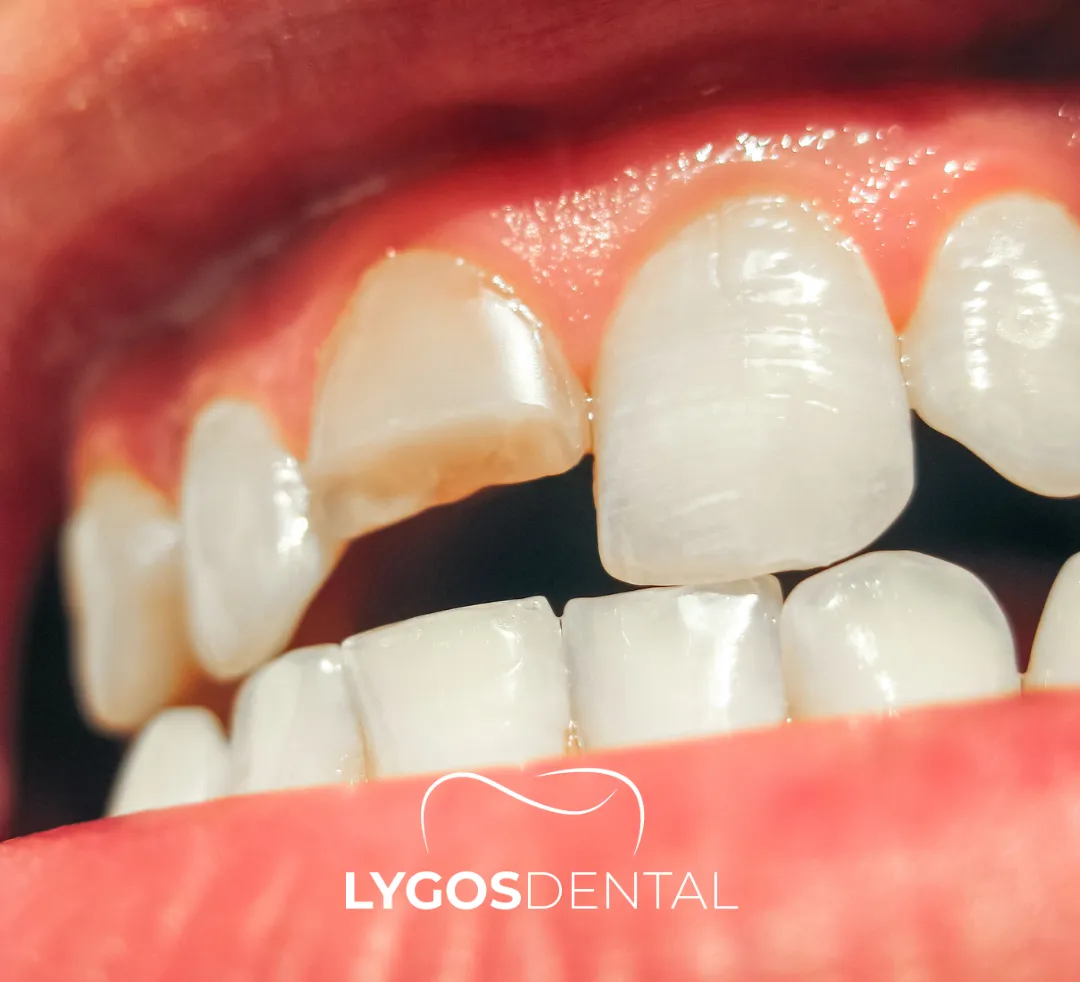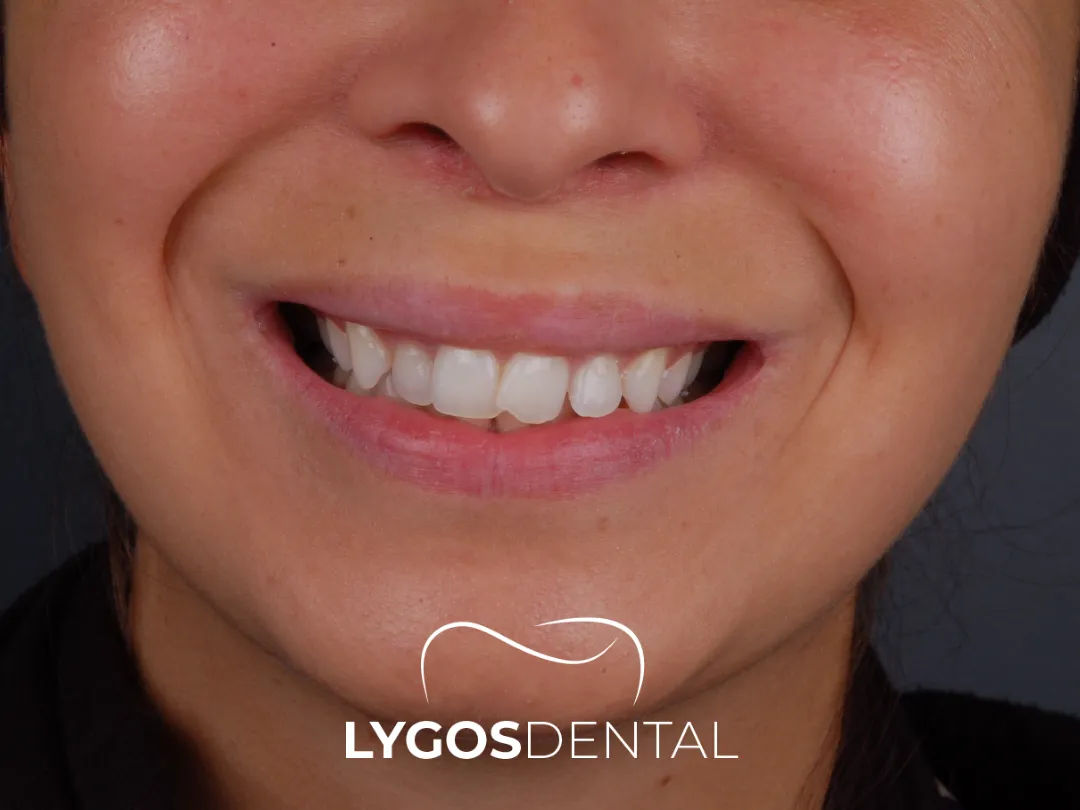Best Dental Clinic in Istanbul
So, how does tooth loss affect speech? In this article, we will examine in detail the effects of tooth loss…
Choose Your Topics
Sudden impacts, such as those from falls, car accidents, or sports-related injuries, can result in cracked or fractured teeth. For instance, being struck in the mouth during a soccer game can cause fractures.
Biting hard items like ice, nuts, or hard candy exerts pressure on teeth, leading to fractures. Many people may unknowingly damage their teeth while chewing popcorn kernels.
Grinding or clenching teeth, especially at night, can wear down enamel, making teeth more susceptible to cracks. Over time, this can result in worsening microfractures.
Untreated cavities weaken tooth structure, increasing fracture risk. Decayed teeth are often fragile and may break during normal chewing.
Teeth with extensive fillings can become weak, making them prone to fractures, particularly when a significant portion of the tooth has been replaced.
As people age, their teeth become more brittle due to years of wear and tear, leading to increased susceptibility to fractures, even with softer foods.
Taking proper care of your teeth and being aware of these potential risks can help reduce the chances of tooth fractures. Regular dental checkups and mindful eating habits are essential in preserving the strength and health of your teeth.
You can contact us here to learn more about Cosmetic Dentistry, Dental Crown, Dental Implant and General Dentistry to make an appointment and to get information about our services.
Treatment options for a broken tooth largely depend on the severity of the fracture. Dental bonding is a favored solution for fixing small chips or cracks in teeth. This process entails applying a tooth-colored resin to the damaged area and using a curing light to solidify and fix it in position.
Bonding restores the tooth’s appearance and functionality without invasive procedures, making it ideal for minor damage. For more significant fractures, a dental veneer or crown might be necessary. Veneers are slender, tailor-made coverings made of porcelain or composite resin that enhance the front of a tooth, boosting both its aesthetics and strength.
Conversely, crowns encase the entire tooth and are typically utilized for more significant fractures. They are made from materials such as porcelain, metal, or a combination of both to fully restore the tooth's strength and shape.
If the fracture reaches the tooth's pulp, a root canal may be required to remove damaged tissue and prevent infection. If the tooth is beyond repair, extraction may be the only option. After the extraction, patients can explore replacement options such as dental implants or bridges to restore both function and aesthetics.


Pregnancy can sometimes increase the risk of tooth fractures due to hormonal changes that affect gum and bone health. Additionally, cravings for hard or sugary foods, coupled with pregnancy-related nausea and vomiting, can weaken teeth and make them more prone to fractures.
It is important for pregnant women to maintain good oral hygiene and visit their dentist regularly to prevent dental issues. If a tooth fracture occurs during pregnancy, most dental treatments can still be safely performed, but it is essential to inform the dentist of the pregnancy.
After a tooth fracture, it is crucial to seek dental attention promptly to prevent further damage or complications. While awaiting professional treatment, you can take several steps to address the situation. To manage discomfort after a tooth fracture, rinse your mouth with warm water, apply a cold compress to your cheek to reduce swelling and take over-the-counter pain relievers as needed.
If the fracture has resulted in a sharp or jagged edge, safeguard your mouth by covering the tooth with dental wax or sugar-free gum to avoid cuts or irritation. Additionally, avoid eating hard or crunchy foods, opting for soft options until you are able to visit a dentist. These steps can help minimize discomfort and protect your tooth until you receive the necessary treatment.


The cost of treating a tooth fracture can vary significantly depending on several factors. The severity of the fracture plays a key role, with minor cracks or chips typically requiring less costly treatments like fillings or bonding, while more extensive damage might necessitate more complex procedures such as crowns, root canal therapy, or even extractions.
Furthermore, the specific treatment needed will influence the total cost, with basic procedures generally being less expensive than complex restorative methods. Other important factors influencing the cost include the location of the dental clinic, as urban or well-known clinics tend to charge more than smaller, rural practices.
Insurance coverage is another variable that can affect the final cost, with some plans covering part of the expenses, particularly if the fracture is the result of trauma or an accident. Many clinics also offer flexible payment options, making treatment more accessible to patients.
A tooth fracture can indicate underlying dental issues such as weakened enamel, tooth decay, or trauma to the mouth. It may also be a sign of bruxism, where excessive grinding or clenching of teeth leads to cracks or chips.
Indeed, if a tooth is partially fractured, options like fillings or dental bonding can effectively restore its integrity. On the other hand, if the damage is significant, choosing a dental crown might be the more suitable option.
In the event of a tooth fracture, begin by gently rinsing your mouth with warm water, using a cold compress to reduce swelling, and taking pain relief medication as necessary. Visit a dentist quickly to evaluate the damage and identify the best treatment option.
If the root of a broken tooth remains in the gum, it can lead to infection, pain, and swelling. In these instances, a dentist may need to extract the root to avoid additional complications.
So, how does tooth loss affect speech? In this article, we will examine in detail the effects of tooth loss…
So, how does tooth loss affect speech? In this article, we will examine in detail the effects of tooth loss…
So, how does tooth loss affect speech? In this article, we will examine in detail the effects of tooth loss…

Special Note:
Our treatments are provided by healthcare facilities that possess a health tourism authorization certificate

Special Note: Our treatments are provided by healthcare facilities that possess a health tourism authorization certificate
Selenium Retro, Ataköy 7-8-9-10. Kısım, D-100 Güney Yanyolu No:18/A, 34158 Bakırköy/İstanbul
© 2025, LYGOS DENTAL. All Rights Reserved.